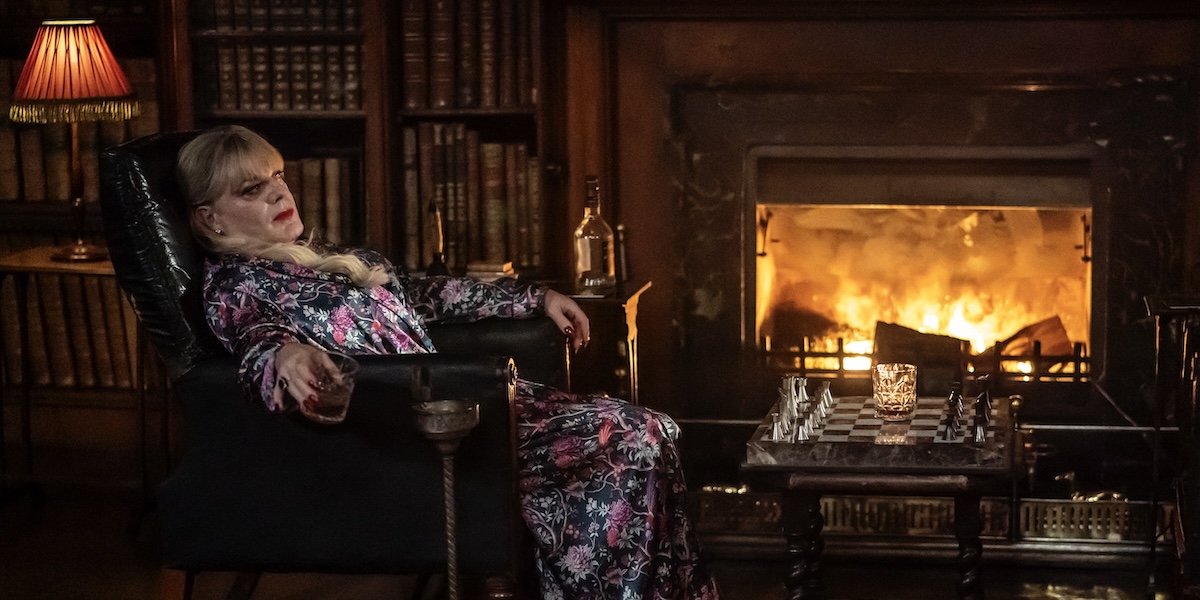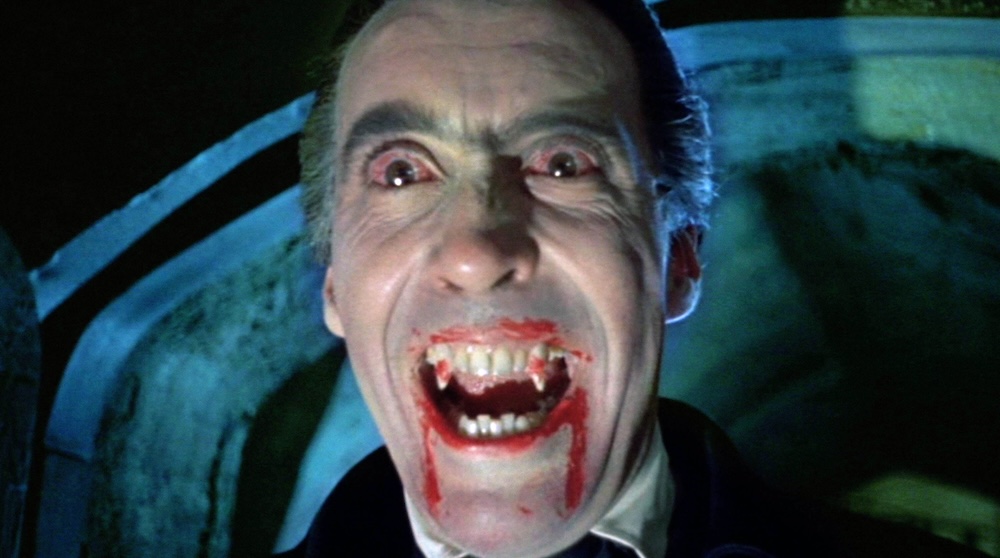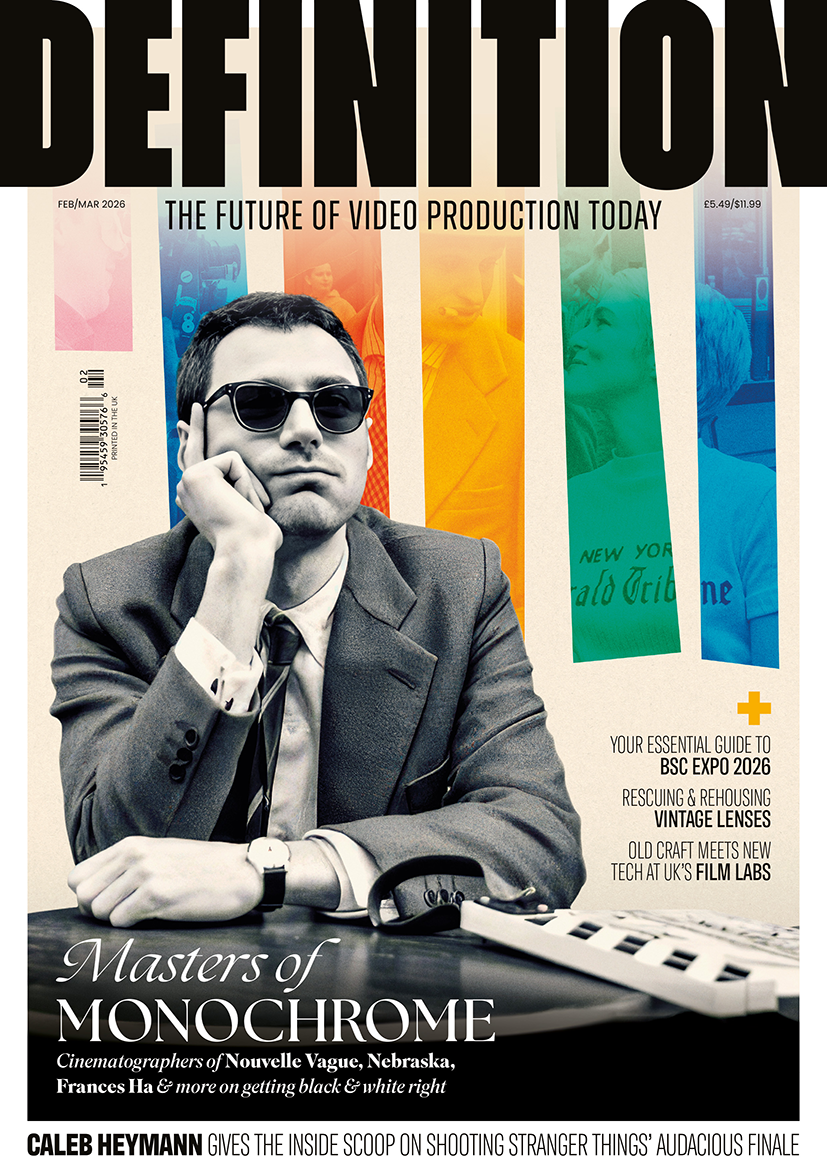
Back from the dead: Hammer Films
Posted on Feb 15, 2024
The iconic Hammer Films has risen from beyond the grave, promising a spine-chilling revamp and a new slate of films. Nicola Foley finds out more
Few names loom as large in the annals of British horror as Hammer Films. During its heyday, the venerated London studio dominated the box office with its fantastically lurid gothic melodramas, enjoying success on success with iconic features like The Curse of Frankenstein (1957), Dracula (1958) and The Mummy (1959). Hammer doused horror in Technicolor for the first time, lured A-list actors to the genre and changed the game forever with its singular aesthetic, forging a legacy that lives on to this day.
After years of silence, the legendary production house has been reanimated, assembling a team of horror lovers that are enthusiastically sinking their teeth into a fresh slate of spine-chilling films. For Steve Rogers, responsible for managing the Hammer Films archive and overseeing the development of new products, being the custodian of such an iconic brand was a dream come true.
“The studio’s history of pioneering horror and suspense genres, combined with its distinctive style and storytelling, has always fascinated me,” he enthuses. “I’m so passionate about bringing these timeless classics to contemporary viewers, while paying homage to Hammer’s remarkable heritage and innovative spirit.”
The road to revival began with the acquisition of Hammer by British theatre impresario John Gore (a classic case of nominative determinism if ever we saw one), who claims to have been enchanted by the magic of the studio’s films ever since he was a young boy. A big milestone on the horizon is Hammer’s 90th anniversary this year, which Rogers sees as a perfect opportunity to reflect on the studio’s history and determine what its future will look like.
“As we celebrate 90 years, we’re not just reminiscing; we are actively shaping the future of horror cinema,” he comments. “We’re committed to keeping the Hammer legacy alive and thrilling, ensuring we continue to be a beloved name in horror for decades to come.”
And what a legacy it is. It’s no exaggeration to say that Hammer Films – with its luxuriously macabre signature style – changed cinema forever, inspiring more than a few of today’s most celebrated filmmakers (Guillermo del Toro and Tim Burton, to name a couple).

The lasting imprint on subsequent generations of filmmakers is not lost on Rogers, who suggests that Hammer didn’t just produce films, it created a whole new lexicon for horror cinema. “Our approach, characterised by vivid colours and intricate set designs, set new standards in cinematic horror. It inspired a more visually compelling and narrative-driven filmmaking,” he insists.
“Additionally, our legacy in pioneering independent film production in the UK showed that compelling, innovative filmmaking doesn’t always require major studio resources,” he continues. “This has inspired generations of filmmakers to push creative boundaries, regardless of constraints. Hammer’s impact is evident not just in horror, but across the whole landscape of cinema.”
The timing of the comeback is no accident, according to Rogers, who believes we’re in the midst of a renewed appreciation for high-quality, character-driven horror narratives. It seems an uncanny coincidence that Hammer’s one-time arch rival, Amicus Productions (responsible for classics including Tales from the Crypt), has also recently been revived. But Rogers is keen to stress that Hammer’s new incarnation won’t just be about rehashing past glories.
“We’re focusing on reimagining and reinventing our brand for the contemporary landscape. We are leveraging new technologies, diverse storytelling perspectives and fresh talent, bringing a modern twist to the classic Hammer style,” he says. “The aim is to preserve the essence of what made Hammer iconic, while making it relevant and exciting for today’s audience.”
The team is looking to adapt to the changing landscape and ensure Hammer’s continued relevance by blending its classic horror with contemporary themes. It will also be embracing streaming platforms and collaborating with exciting emerging filmmakers and actors to bring fresh perspectives to the storytelling.
The game plan seems to be on track so far. The resurrection has generated an overwhelming response, reflecting the deeply held affection for the brand but also igniting the interest of a new generation, as Rogers explains: “The enthusiasm extends beyond just our traditional fanbase; we’ve witnessed a growing interest in younger people who are discovering Hammer’s unique style for the first time. Industry response has also been encouraging, with many recognising the potential for innovative storytelling within the horror genre that Hammer is known for.
“This revival has sparked a renewed interest in the genre, highlighting the timeless appeal of our storytelling and the enduring impact of our brand,” he concludes. “We are excited about this journey and committed to delivering content that lives up to the legacy of Hammer Films – while pushing the boundaries of modern horror.”
This article appears in our February issue. Read the full magazine here.









